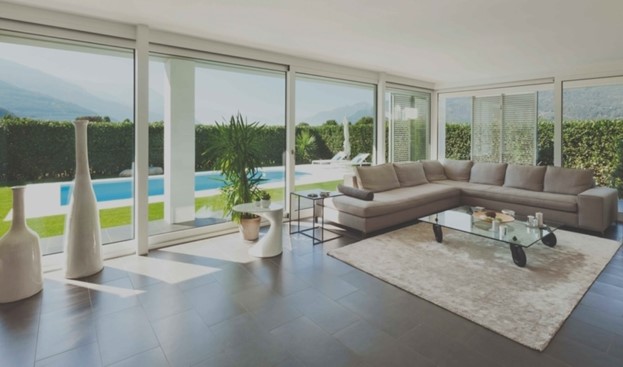When shopping for new windows or glass panes, you may come across the term “eco-friendly glass” and wonder what makes it special. At first glance, it looks like traditional glass, but this innovative material offers noteworthy advantages, from boosting energy savings to lowering environmental impact. Learning about eco-friendly glass merits your attention as you shop for glass items or replacement windows.
Considering how it may benefit your wallet, health, and the planet can be an eye-opening experience. So, read on to learn about environmentally friendly glass and its various benefits.
An Overview of Eco-Friendly Glass
Nowadays, people want buildings that are kind to the environment – what we call “green” buildings. Glass windows and doors are an important part of making buildings greener.
Regular glass lets too much heat and cold pass through. However, eco-friendly glass is made better to keep the temperature comfortable inside. It has two or three layers of glass with air spaces in between. The layers help stop heat and cold from getting in, so your air conditioning or heating system doesn’t have to work so hard.
Eco-friendly glass helps cut energy use while still letting in nice natural light.
Benefits of Eco-Friendly Glass
There are various benefits of Eco-friendly glasses, including:
Energy Efficient
Eco-friendly glass options like low-emissivity (low-E) glass and double or triple glazing utilize specialized coatings and multiple panes to significantly reduce heat loss in winter and heat gain in summer. The improved insulation lowers the energy required to heat and cool a building. Installing energy-efficient glass can reduce electricity and gas consumption in buildings by up to 30%. This saves money on utility bills and reduces the carbon footprint.
Natural Light and Views
Many types of sustainable glass maintain high visibility while controlling glare and heat/UV rays. For example, low-iron glass maximizes visible light transmission for beautifully bright, crystalline indoor light quality. And coatings like passive solar low-E balance light, heat, and views. This creates sun-filled indoor spaces with less eye strain and clear views that connect occupants to the outdoors – boosting morale and comfort.
Noise Reduction
Some eco-friendly glass options, like laminated glazing or those with sound-dampening PVBC interlayers, block outside noise pollution from entering buildings. By absorbing and insulating against sound, these specialty acoustic glass panels reduce noise from busy roads, construction, and other sources – creating peaceful, quieter indoor environments for better concentration and living quality.
Durability and Safety
Sustainable glass is often tempered for 4-5 times more strength or laminated with durable interlayers for increased safety and security. Features like self-cleaning coatings also boost the ease of maintenance. The durability translates into the glass that withstands heavy use and harsh weather over decades while protecting against intrusions. This increases lifespan and reduces replacement needs.
Lower Emissions
Using recycled glass cullet in manufacturing significantly lowers CO2 emissions compared to making glass solely from raw materials. Enhancing energy efficiency in buildings with high-performance glazing reduces electricity and heating fuel consumption, thereby lowering associated greenhouse gas outputs from power generation and combustion over the lifetime of the building.
Healthier Interiors
High-performance eco-glass blocks over 99% of harmful ultraviolet rays that can damage furnishings and artwork. It also enables sufficient daylighting and proper ventilation to create healthier indoor environments with less toxic VOCs and allergens. This improves indoor air quality and comfort for occupants. Studies show improved productivity and well-being.
Sustainable Materials
Environmentally preferable glass contains pre- and post-consumer recycled content, reclaimed materials, or bio-based materials like plant resin. Using recycled glass reduces landfill waste. And bio-based materials lower dependence on petrochemicals. Specifying green materials conserves resources and prevents pollution.
The Bottom Line
Eco-friendly glass offers multi-layered glazing for energy savings, noise reduction, safety, sustainability, and healthier buildings. Contact AIS Glass today to learn about our full range of high-performance, environmentally preferable window and façade solutions to create greener, more comfortable spaces.

